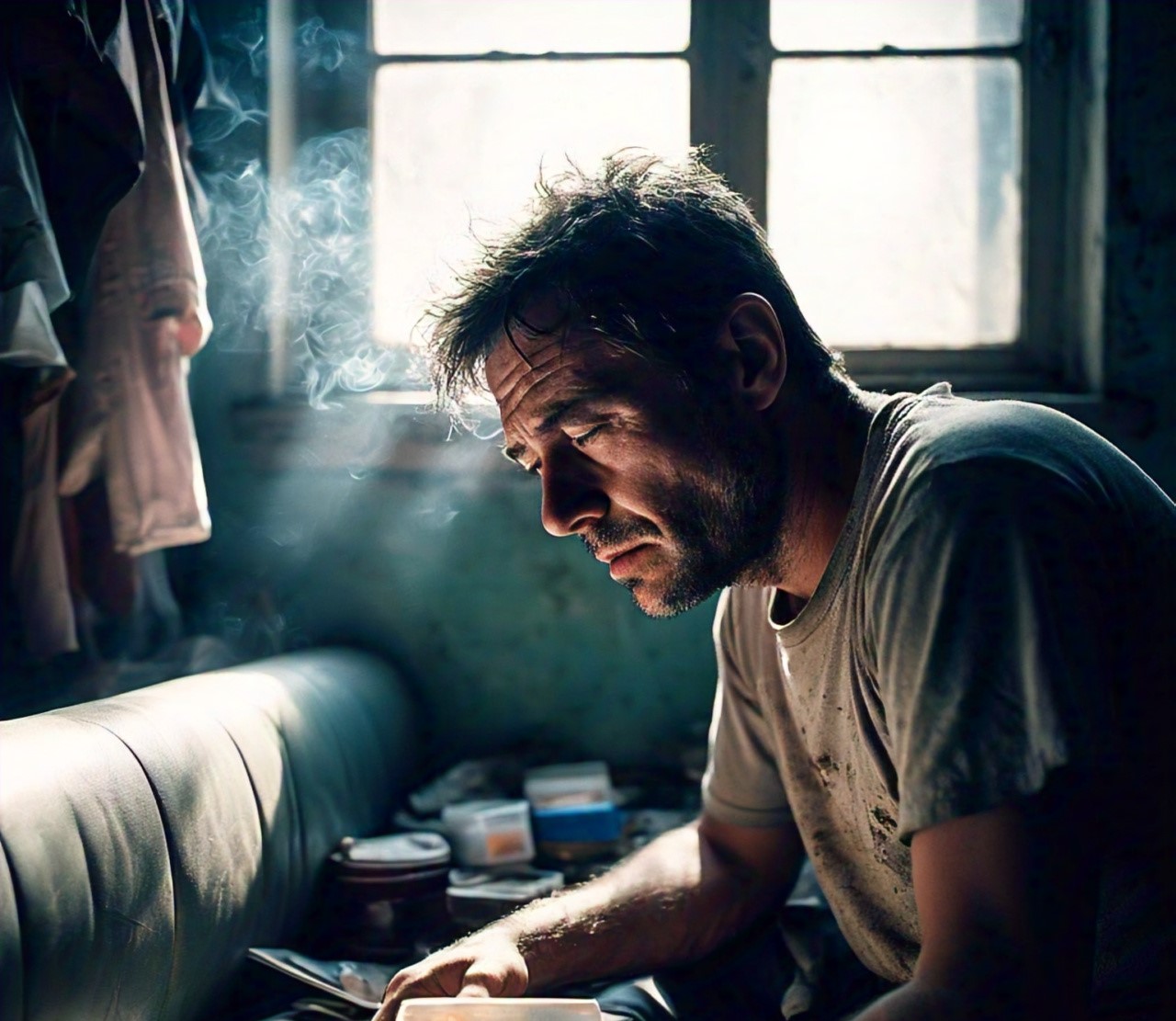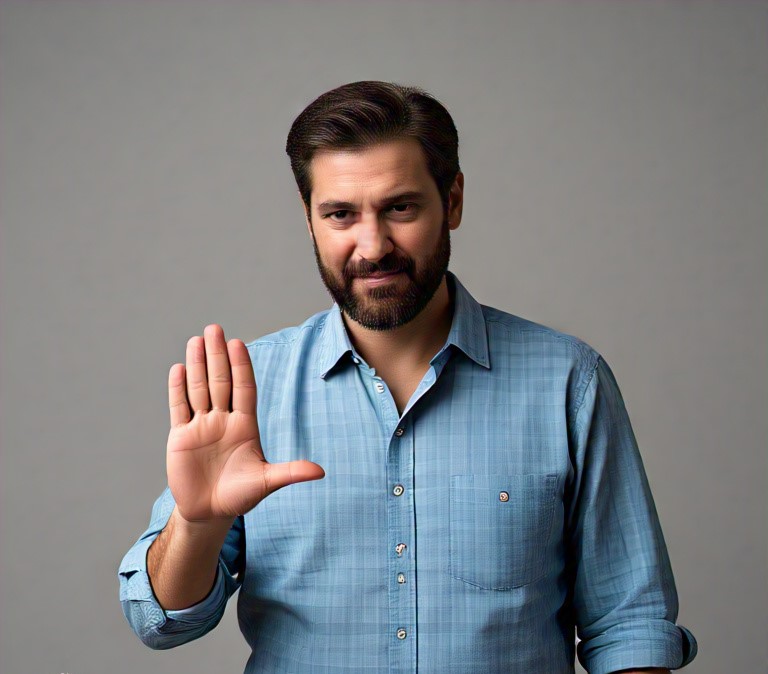I recently just listened to a Podcast with the title of the episode: Things Worse Than Dying by Ryan Holiday on The Daily Stoic Podcast, very interesting so today, I want to expand on it.
You see we talk about death as though it is the ultimate evil; the one fate to avoid at all costs, and so we fight it with medicine, with wealth, with denial. We idolize longevity and fear the unknown on the other side, but take a moment with me to ask: What if our obsession with staying alive is blinding us to something far more dangerous?
The Stoic philosopher Seneca didn’t see death as the worst thing that could happen; what disturbed him more was the things people were willing to do in order to avoid dying. In his writings, and as communicated in the podcast that inspired this reflection, Seneca points out how humans driven by fear and self-interest often trade their deepest values for a few more breaths: We lie, cheat, steal. We betray loved ones. We abandon what we know is right and sometimes, as the podcast states, we even sacrifice the well-being of future generations just to preserve our present comforts.
And what is even worse is that we call this survival, but what kind of life is it, really, honestly, what kind of life is it, when it is bought with compromise? A life that costs us our character, our conscience, and our clarity is a life already half-lost. As Seneca put it, better to be in a coma on a ventilator than to be awake and aware of the disgraceful things you have done simply to stay alive and that is precisely what I want us to talk about: That there are things worse than dying and if we are not careful, we might be living them now, especially because we fear death.
The Fear of Death
For most of us, death is the ultimate threat; the final line we are desperate not to cross. It ends everything we know and cuts short everything we hope to do, so naturally, we flinch at the thought of it. We build our lives around avoiding it, delaying it, or pretending it won’t come for us. But is death really the worst thing that can happen to a person? And this question sits at the heart of the ancient wisdom offered by the Stoic philosopher Seneca, because while it makes perfect sense, at a glance, to try to avoid death, Seneca challenges us to consider what that instinct drives us to do and ask: What if the cost of avoiding death is greater than death itself?

And this is because he observed how people will go to terrible lengths just to preserve their physical existence again: We betray friends, we abandon our most cherished beliefs, we sell out the generations that come after us just to hold on to a familiar feeling or life. And as the podcast pointed out, elderly voters, for instance, can often vote in ways that protect their comfort while compromising the future of their children and grandchildren; this for one is something I am sure we have all seen, especially in the part of the word where I am from, over and over and over again. It is a form of self-preservation disguised as wisdom but it is really just fear in disguise.
So Seneca does not just find this behavior foolish; he finds it pathetic, because: In our desperate attempts to avoid dying, we end up avoiding living well. We think we are winning by staying alive, but if we have lost our values, our integrity, and our soul in the process. What exactly have we kept?
Seneca’s Warning: What We Sacrifice to Stay Alive
Seneca was not just making speculations about the human condition, he was observing it; I would like to believe with a very sharp and honest eye, he looked at the lengths that people would go to in order to avoid the inevitable, and he was appalled. In his writings, and as said in the podcast, he describes a disturbing truth: When death looms, people often toss their principles aside like a loose garment.
It is not just about self-preservation in emergencies; it is very very much also about the slow uprooting of their integrity under the pressure of fear. And so, Seneca was amazed at the terrible things people do to stay alive not even in war zones or survival scenarios, but in their everyday life, again: We betray friends for convenience, we twist the truth to protect our image, we abandon deeply held convictions when they threaten our comfort or position.
The podcast further highlighted how even in the present days, this sacrifice of integrity continues. Take again the example it gives: Elderly voters motivated by fear of change or loss, sometimes vote in ways that secure their own comfort at the expense of younger generations. This is not just political; it is very very much philosophical. It shows how easily self-interest can hide or present itself as wisdom and in our desire to avoid discomfort, change, or loss, we may abandon justice and compassion altogether.
And for what? Really for what? Another few years? A preserved lifestyle? A false sense of security? Seneca’s warning is not subtle, it is very clear and obvious: Staying alive is not the same as living well. If we sacrifice what is sacred within us just to survive, we are not saving ourselves, we are slowly destroying the very soul that makes life meaningful.
Trading Integrity for Survival
It is one thing to stay alive; it is another to be able to look at yourself in the mirror, and this is the heart of Seneca’s concern: What good is survival if the price is your dignity? Your honesty? Your soul?
Again the podcast touches this sentiment powerfully, it says: “Sure, you are literally still alive, but you traded your soul to make it so.” In other words, you may have preserved your heartbeat, but you have silenced your conscience; you may walk and talk and function, but something essential inside you has gone numb.
Another thing is that, we often think of compromise as a strategic choice, something mature people do to get by, but the thing is when we compromise our values just to continue existing, we are not strategizing, we are surrendering. It is not a clever move; in fact, it is a hollow victory and that is no victory at all. Going by Seneca’s take on this, it is very clear that he would argue that living in such a state is not truly living at all, and he compares it to being in a coma on a ventilator, but at least in that condition, the body is unaware of its state. But worse is that when we choose to live dishonorably, selfishly, or without principle, we remain painfully aware. We feel the weight of what we have lost, even if we will not admit it, and are there people who do not feel anything at all? Yes and that stage is even worse than the worse.
Living without integrity is not a loophole around death; it is a slow death of another kind; the erosion of meaning, the loss of peace, and the quiet decay of our humanity. And what is worse is that we do not just have to make the compromise, we have to live with it. Every day becomes a reminder not of what we escaped, but of what we have become; nothing and at best cheap.
The Daily Stoic Podcast has come to be one of my favorite podcast to listen to and just recently I listened to on of the episode that has got me thinking ever since I did, and you have already seen from the title, the topic is “Don’t Sell Out”
The episode started with a question Epictetus asked in one of his discourses: “Your respect, trustworthiness and steadiness, peace of mind, freedom from pain and fear, in a word, your freedom. For what would you sell these things?”
Like I have come to love asking my readers, take a moment to think about it, you, yes you! Take a moment, take it personal because I’m asking you, so again to you my friend: “Your respect, trustworthiness and steadiness, peace of mind, freedom from pain and fear, in a word, your freedom. For what would you sell these things?”
And just as the Ryan Holiday went further to state that; the answer, too often, is “for pennies on the dollar.” We trade our word for a small edge in business. We mortgage our self-respect for fancy friends or fleeting fame. We auction our freedom for jobs that drain our souls or relationships that chip away at our dignity.
Continue Reading: Don’t Sell Out, Don’t Be Cheap
The Burden of Living with Compromise
Seneca’s insight does not stop at the act of compromise, it digs deeper into the consequences. It is not only that people do dishonorable things to stay alive; it is that they then have to live with those choices. So again; the podcast phrases it like this: “People do terrible things to live to see the sunrise the next day, a dawn that is privy to their many sins.”
If you understand it; that line stops you cold and you do not get it, let me rephrase it in simple terms: “People do very bad things just to survive and make it to the next day, even though the morning light knows all the wrong they have done.” Because it is true, sunrise does not cleanse the soul. A new day does not erase the decisions we made the day before; it simply reveals them, by showing how those actions have shaped our character and this goes on to be obvious with each new day, and the very light we hoped would bring relief instead exposes our shame.
And so this is the real cost of selling out our integrity: The inescapable burden of carrying it with us.
We may find ways to justify our actions in the moment “I had no choice,” “I did what I had to do,” “Everyone else is doing it,” but those justifications do not silence the inner voice that remembers the truth; that voice grows heavier with each passing day, whispering: You have become something smaller than you were meant to be, you have sold out, you are now cheap.
It is not just about guilt; it is about fragmentation because every time we compromise, we split ourselves. We become someone we did not set out to be, and over time, those fractures add up until we can no longer recognize who we are. And Seneca’s wisdom is sharp here: Death may be final, but the soul-crushing weight of a dishonorable life is worse. A long life lived poorly is not a blessing; it is a sentence.
The Silent Witness to Our Sins: Dawn and Guilt
“A dawn that’s privy to their many sins,” is clearly saying that time does not forget. The rising sun greets everyone equally, but it shines differently depending on what we carry into the day.
For those who have traded virtue for survival, the sunrise does not symbolize hope; it exposes regret. Each morning becomes a quiet witness to what they have done. Not in loud condemnation, but in the haunting stillness of self-awareness. You can not outrun it. You can not bury shame or at the very least guilt deep enough that the light will not eventually touch it. That is the terrible irony: We fight so hard to live one more day, yet when that day arrives, we can barely bear to face it; we become haunted not by death, but by ourselves.
This is what makes certain choices worse than dying. It is not just that they compromise our integrity; it is that they follow us, shadow us, and weigh down the very life we tried so desperately to protect. The guilt is not always explosive, sometimes, it is quiet. Lingering. An itching discomfort we feel in silence, when no one else is around, and nothing can drown out the sound of our conscience, and even if we get to a point where we are able to drown the voice of our conscience, like I said before, this is worse than worse, another word to describe it is: A dead man walking.
And Seneca understood that guilt has a memory, and so does the soul; that is why doing what is right is not just a matter of morality; it is a matter of peace because: The only thing heavier than death is a life lived out of alignment with what we know is true.
The Dangerous Illusion: Life at Any Cost
There is a dangerous illusion that quietly directs much of our decision-making: The belief that life, by itself, is the highest good; that simply staying alive is always worth the cost. But Seneca, and the podcast, Daily Stoic by Ryan Holiday that brought his insight to my ears, exposes this for what it is: A lie dressed in the clothes of survival.
So when we say “at least I am still alive,” we have to also ask “at what cost?”
Survival can be noble in the face of tragedy or adversity, but when it becomes an excuse for cowardice, selfishness, or moral decay, it is no longer noble; it is tragic. The podcast points out how people steal, hoard, lie, and cheat to extend their days. But what do those days become? More opportunities to protect our ego? More time to maintain a crumbling facade?
We fear dying, but we rarely fear becoming the kind of person who would do anything to avoid it, and that is the illusion: That mere existence is more valuable than existence with meaning, character, and purpose. The longer we live under that delusion, the more we are willing to give up for it. Eventually, we do not just sacrifice our values, we forget we ever had them.
Seneca’s words cut through the fog: It is not how long you live that matters; it is how well. And if staying alive means abandoning what makes life worth living, honor, love, justice, truth, then we are not preserving life. We are preserving the shell of it, and calling it success. We must not be deceived, a longer life is not always a better one.
What Truly Matters: Not Years, But Virtue
Seneca reminds us through both his philosophy and the reflections shared in the podcast by Ryan Holiday, that life itself is not the scarce resource. What is truly rare is a life well-lived; it is not the number of years we accumulate, but the kind of person we become in those years that matters.
We obsess over extending our days, but we often neglect to ask: What kind of days am I living? Are they full of truth, courage, compassion, and principle? Or are they stretched out with fear, compromise, and selfishness?
There are fates worse than death, and chief among them is the slow dying of the soul, day by day, through decisions made out of fear rather than conviction. A life without integrity, without purpose, without goodness, is not a gift; it is a weight. The tragedy is not just that we die; it is that we live in such a way that we lose ourselves long before the end comes.
That is why Seneca, and many other ancient thinkers, saw dying with honor as better than living with disgrace, because when you live rightly, when you do the hard thing, the honest thing, the just thing, you preserve the character and soul part of you. That is what we must pursue. Not longevity, but legacy. Not comfort, but courage. Not survival, but significance.
Because in the end, what we did with our lives, not how long we had them is what will stand in the light of dawn.
Read Also: How One Small Lie Put A BIG Weight On My Chest
Read Also: Things Don’t Make The Man
Read Also: The Beautiful Mind: Planting What Is Pure and Lovely
Conclusion
Seneca’s wisdom, as very well explained in the podcast by Ryan Holiday, challenges us to rethink what really matters. It is not the number of breaths we take but the quality of the life behind those breaths. There are things worse than dying; compromising your soul, betraying your values, living in shame and regret; these are the true tragedies, the slow deaths that eat away at our humanity long before our final moment arrives.
The question is not how to avoid death, but how to live so well that when death comes, we can meet it without fear or bitterness. To live with courage, integrity, and love is to triumph over the very thing we fear most.
So when you feel the pull of fear; fear of loss, change, or the unknown, remember Seneca’s call: Choose a life worth living, not just a life worth extending, because in that choice lies the true victory over death.





